Wisconsin Supreme Court rules state law does not permit ballot drop boxes
In a 4-3 ruling that only covers one-third of the written decision, the conservative majority on the state's high court found that voters must return absentee ballots to local election clerks and not to a drop box in advance of an election.
By Zac Schultz
July 8, 2022
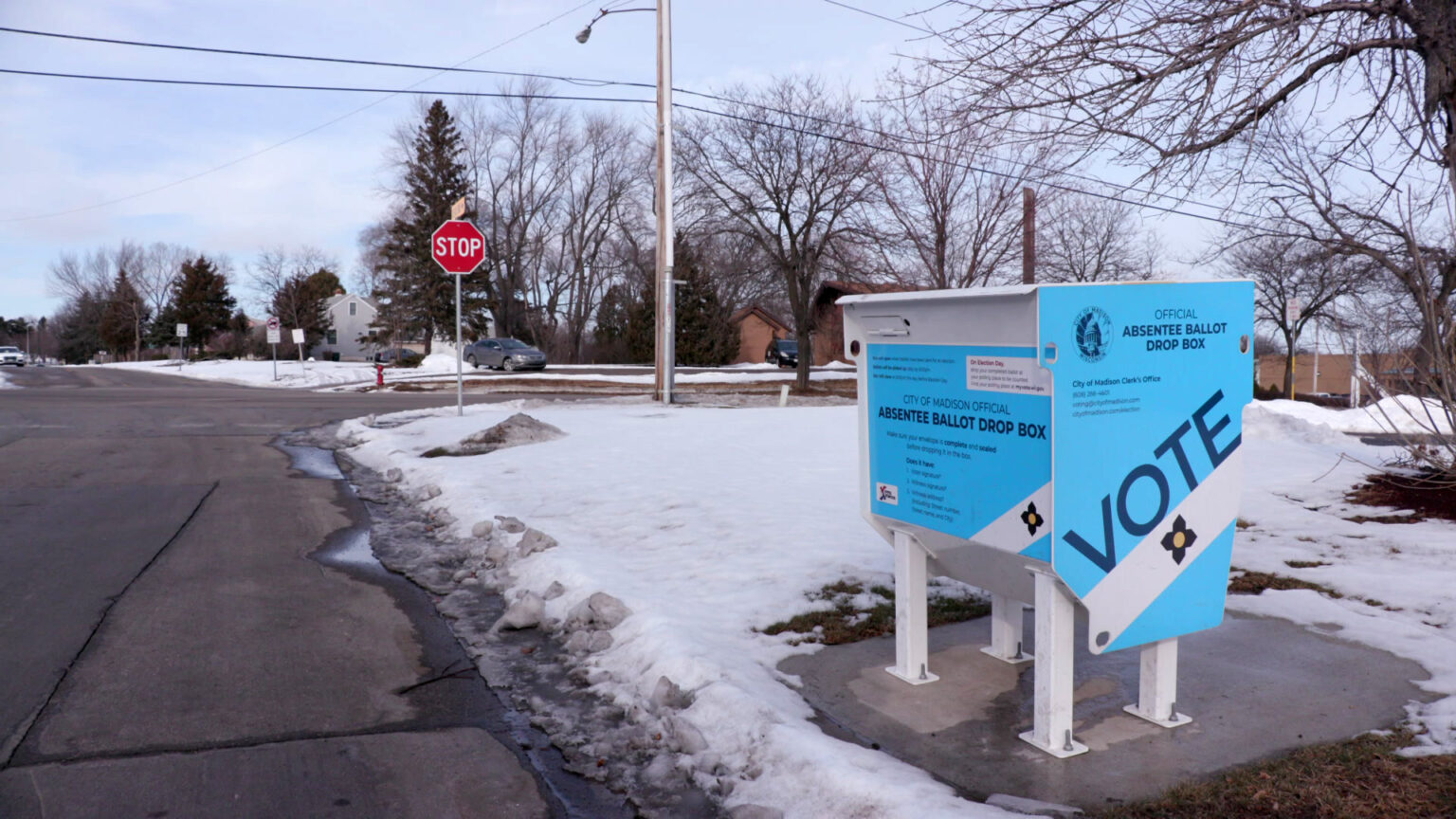
The Wisconsin Supreme Court ruled July 8, 2022 that ballot drop boxes are not allowed under state law. Before this ruling, drop boxes were deployed by some municipalities in advance of the Feb. 8, 2022 spring primary, including in Madison. (Credit: PBS Wisconsin)
In a fractured opinion, the conservative majority on the Wisconsin Supreme Court ruled ballot drop boxes are not authorized under state law and cannot be used in elections.
The decision was written by Justice Rebecca Bradley, ruling “…ballot drop boxes are illegal under Wisconsin statutes. An absentee ballot must be returned by mail or the voter must personally deliver it to the municipal clerk at the clerk’s office or a designated alternate site.”
In 2020, there was a surge of interest in absentee voting due to the COVID-19 pandemic. Local election clerks asked the Wisconsin Elections Commission if they could set up drop boxes in which voters could submit sealed absentee ballots.
There is no mention in state law of ballot drop boxes, which are common in other states. In advance of the 2020 general election, the commission issued guidance papers to local clerks telling them how and where to set up drop boxes. No campaign challenged the existence of this practice until after the November vote, when then President Donald Trump’s campaign sued, arguing their use was illegal. As part of this lawsuit, Trump attempted to have thousands of ballots in Dane and Milwaukee counties thrown out. The Wisconsin Supreme Court rejected the challenge, but did not rule on the legality of drop boxes.
This 2022 decision stems from a lawsuit filed in 2021 by the conservative law firm Wisconsin Institute for Law & Liberty. In response, the Wisconsin Elections Commission argued drop boxes are legal because they aren’t prohibited. Justice Rebecca Bradley rejected that reasoning.
“No defendant can point to any statute authorizing ballot drop boxes; instead, the defendants argue no statute expressly prohibits them. The absence of an express prohibition, however, does not mean drop boxes comport with ‘the procedures specified’ in the election laws,” she wrote
Drop boxes have become politically contentious in the wake of Trump’s attempts to connect them to conspiracy theories about voter fraud. Most Republican lawmakers had no opinion about their use prior to the 2020 election, yet now they almost uniformly oppose them. A bill introduced in 2021 by Republican legislators sought to limit their use. As of 2022, every Republican running for governor of Wisconsin wants to ban drop boxes as well as eliminate the commission, despite the agency being a creation of former Republican Gov. Scott Walker.
In a dissent by the court’s liberal justices in the minority, Justice Ann Walsh Bradley wrote the decision in the drop box lawsuit plays into those conspiracies.
“The majority/lead opinion blithely and erroneously seeks to sow distrust in the administration of our elections and through its faulty analysis erects yet another barrier for voters to exercise this ‘sacred right.’ Although it pays lip service to the import of the right to vote, the majority/lead opinion has the practical effect of making it more difficult to exercise it,” she wrote. “Such a result, although lamentable, is not a surprise from this court. It has seemingly taken the opportunity to make it harder to vote or to inject confusion into the process whenever it has been presented with the opportunity.”
While voting is a protected constitutional right, voting on an absentee basis is not considered to be, and therefore state statute guides rules for how to properly return a ballot to the local election clerk. Justice Rebecca Bradley wrote the key phrase in state law is that ballots must be returned “to the municipal clerk.”
“[The Wisconsin Elections Commission] would have us believe, hiding within four words, to the municipal clerk,’ is an expansive conception of voting methods never before recognized. We decline to read into the statutes a monumentally different voting mechanism not specified by the legislature,” she wrote.
Gov, Tony Evers issued a statement lamenting the court’s ruling.
“Today’s decision is another in a long line of Wisconsin Republicans’ successes to make it harder for Wisconsinites to exercise their right to vote, to undermine our free, fair, and secure elections, and to threaten our democracy,” Evers stated.
Leading Republican candidates for governor, Rebecca Kleefisch and Tim Michels, each put out statements celebrating the ruling.
“This decision is a huge win for election integrity. But our work is not done. We must elect a governor committed to signing legislation that protects the integrity of our elections and understands that unelected bureaucrats have no business re-writing our laws,” Kleefisch stated.
“I’m glad the court today sided with election integrity and affirmed our belief that unmanned drop boxes were illegal,” Michels stated.
The court’s decision also ruled that only the voter can return a ballot to the municipal clerk.
“[The Wisconsin Elections Commission’s] staff also erred in Memo one by stating ‘[a] family member or another person may . . . return the ballot on behalf of the voter,’ i.e., an agent of the voter may place the voter’s absentee ballot in a drop box. The law does not permit this,” Justice Rebecca Bradley wrote.
At oral arguments for this lawsuit, there was a debate about whether a spouse or a child of a voter could place a ballot in the mailbox. While the court did not rule on this particular question, Justice Ann Walsh Bradley’s dissent said the burden will fall on certain voters.
“The brunt of this holding will fall on those who are homebound. If a voter is disabled or sick, and someone the voter lives with is taking their own absentee ballot to the clerk’s office, that roommate, spouse, or family member can’t, under the majority/lead opinion’s analysis, simply pick up another validly voted ballot from the kitchen table and take it with them,” she wrote.
Wisconsin Elections Commission guidance allowing the use of drop boxes was in place before the 2022 spring primary on Feb. 15, but the agency subsequently revoked its directive and they were not used in advance of the April 5 spring election.
While the majority opinion decided the fate of ballot drop boxes in Wisconsin, the underlying legal arguments were not settled. To create the four-person majority, Justice Brian Hagedorn only joined with 30 of the 87 paragraphs of the decision, scattered throughout the ruling. Hagedorn even declined to join a footnote that criticized the tone of the dissent.
Instead, the majority opinion was only joined in part, and there are three concurring opinions, none of which carry the power of law.
Hagedorn wrote the only solution is for the state Legislature to clear up remaining questions by passing new laws.
“The election law statutes we are asked to consider are by no means a model of clarity. Many of the controlling provisions were originally enacted over 100 years ago and have been layered over with numerous amendments since. Reasonable minds might read them differently. Significant questions remain despite our decision in this case, especially as absentee voting has become increasingly common,” Hagedorn wrote. “Although our adjudication of this case will provide some assistance, the public is better served by clear statutes than by clear judicial opinions interpreting unclear statutes.”
 Passport
Passport




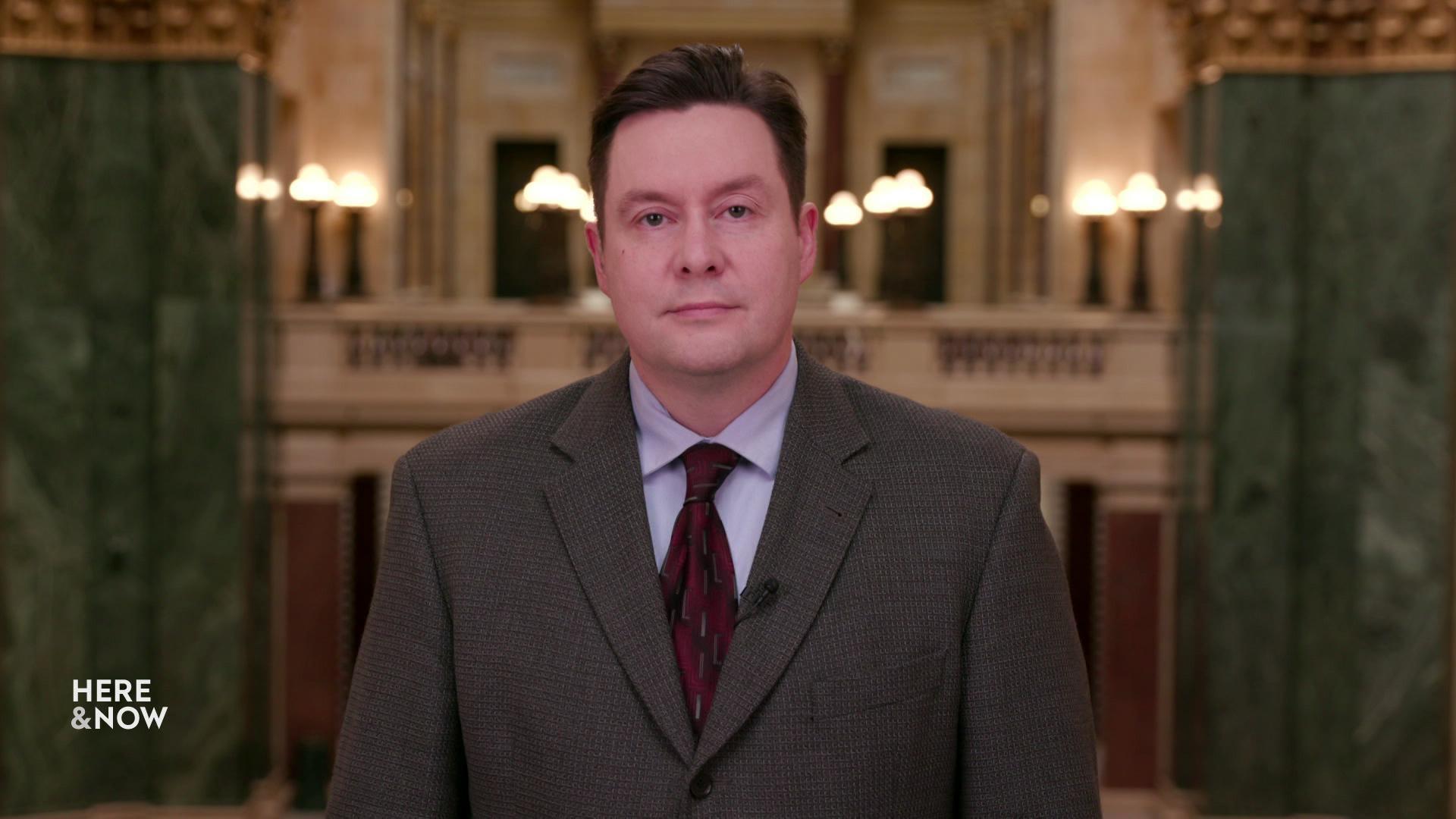
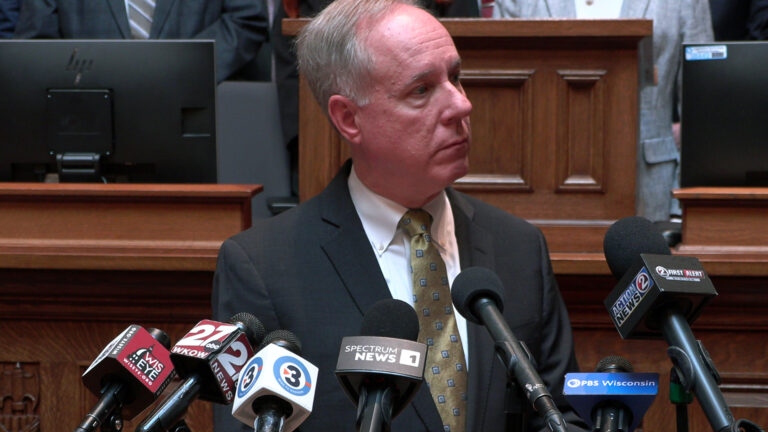

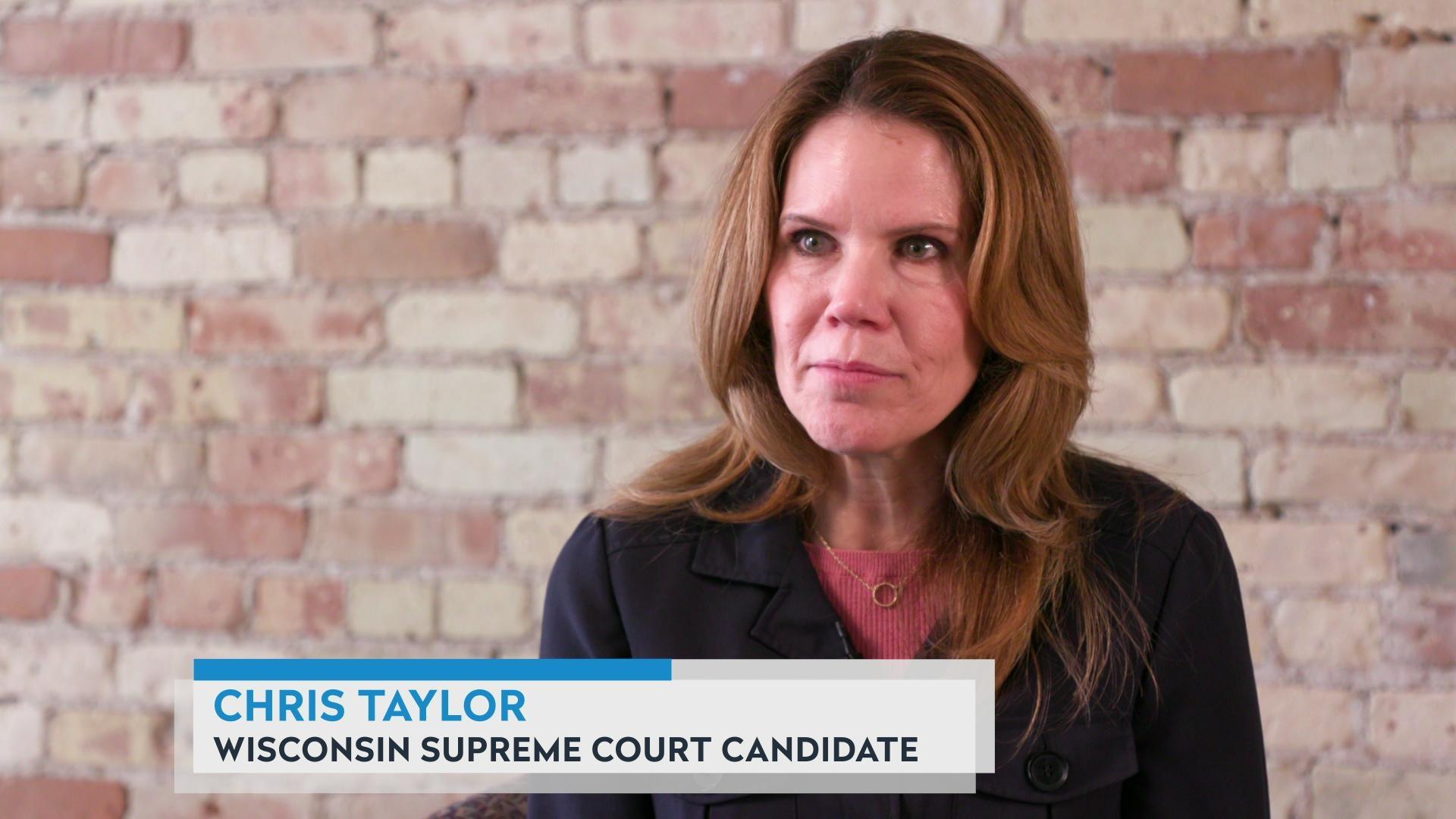
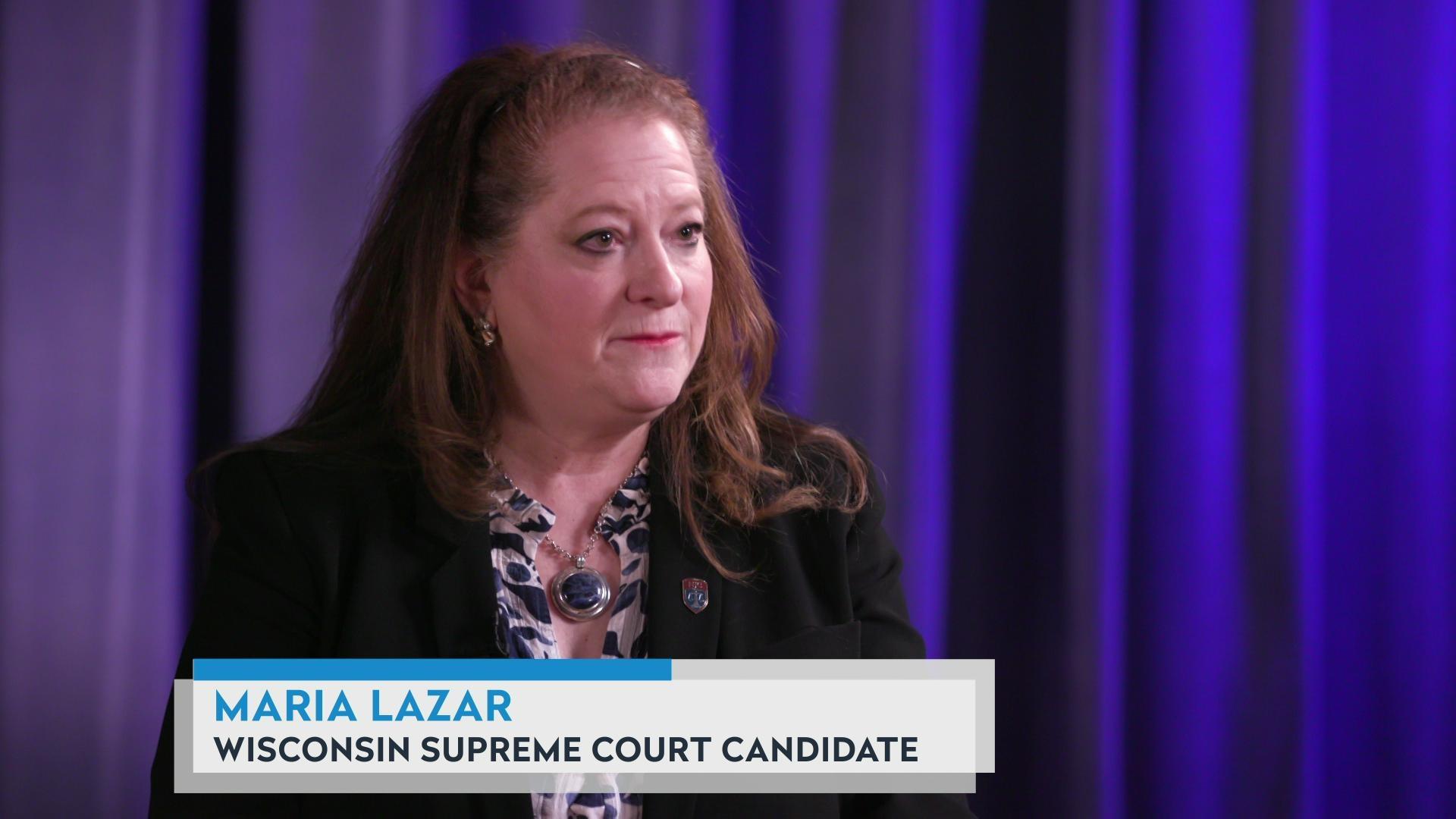


Follow Us